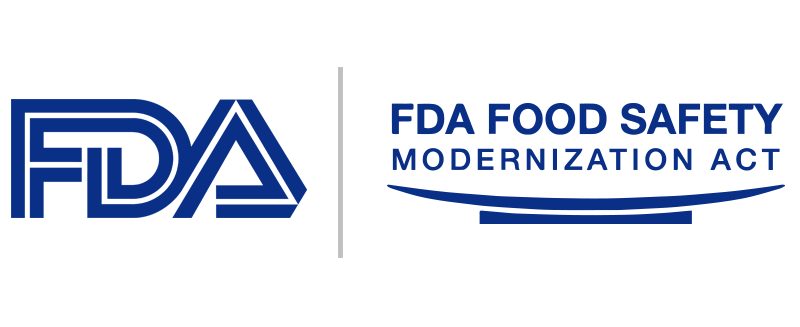What you don’t know can hurt you.
FSMA Regulations
The FDA, through The Food Safety Modernization Act (FSMA), specifically identifies ice and condensation as contaminates that are not allowed in Lo-Temp facilities. FSMA, which became final in September 2015, requires food facilities to have a food safety plan in place that includes an analysis of hazards and risk-based preventive controls to minimize or prevent the identified hazards. (FSMA Final Rule for Preventive Controls for Human Food, https://www.fda.gov/food/food-safety-modernization-act-fsma/fsma-final-rule-preventive-controls-human-food, hereafter FSMA Final Rule)
FSMA Final Rule § 117.20 (b) 4) states in part: (b) Plant construction and design. The manufacturing, processing, packing, and holding plant must: 4) Be constructed in such a manner that floors, walls, and ceilings may be adequately cleaned and kept clean and kept in good repair; that drip or condensate from fixtures, ducts and pipes does not contaminate food, food-contact surfaces, or food-packaging materials;
In simple terms, ice and condensation — which is proven to carry Listeria and other bacterium — are NOT allowed in lo temp facilities.
_______________________
Understanding Listeria – L. monocytogenes
L. monocytogenes is an environmental pathogen that can contaminate foods and cause a mild, non-invasive illness (called listerial gastroenteritis) or a severe, invasive illness (called listeriosis). Commonly called Listeria, Listeriosis is characterized by a relatively high mortality rate compared to illnesses caused by most other foodborne pathogens (~20% compared to <1 % for Salmonella or E. coli O157)
Persons who have the greatest risk of experiencing listeriosis due to consumption of foods contaminated with L. monocytogenes are pregnant women and their fetuses, the elderly, and persons with weakened immune systems. Foods that have caused outbreaks are typically contaminated from the environment during manufacturing/processing or packing.
Although temperatures below freezing slow the growth of Listeria, L. monocytogenes can multiply in -15-degree temperatures and therefore at much higher refrigeration temperatures. As a result, refrigeration is less effective as a control measure for L. monocytogenes than for other foodborne pathogens.
Listeria grows and multiplies in Ice and Condensation, is a contaminant under FSMA, and, because of that alone, Ice and Condensation cannot be allowed in thermal controlled facilities that house food or pharmacy.
Note: citations supporting the above can be found on the White Paper: FSMA Compliance & Energy Savings under the Resources tab.


